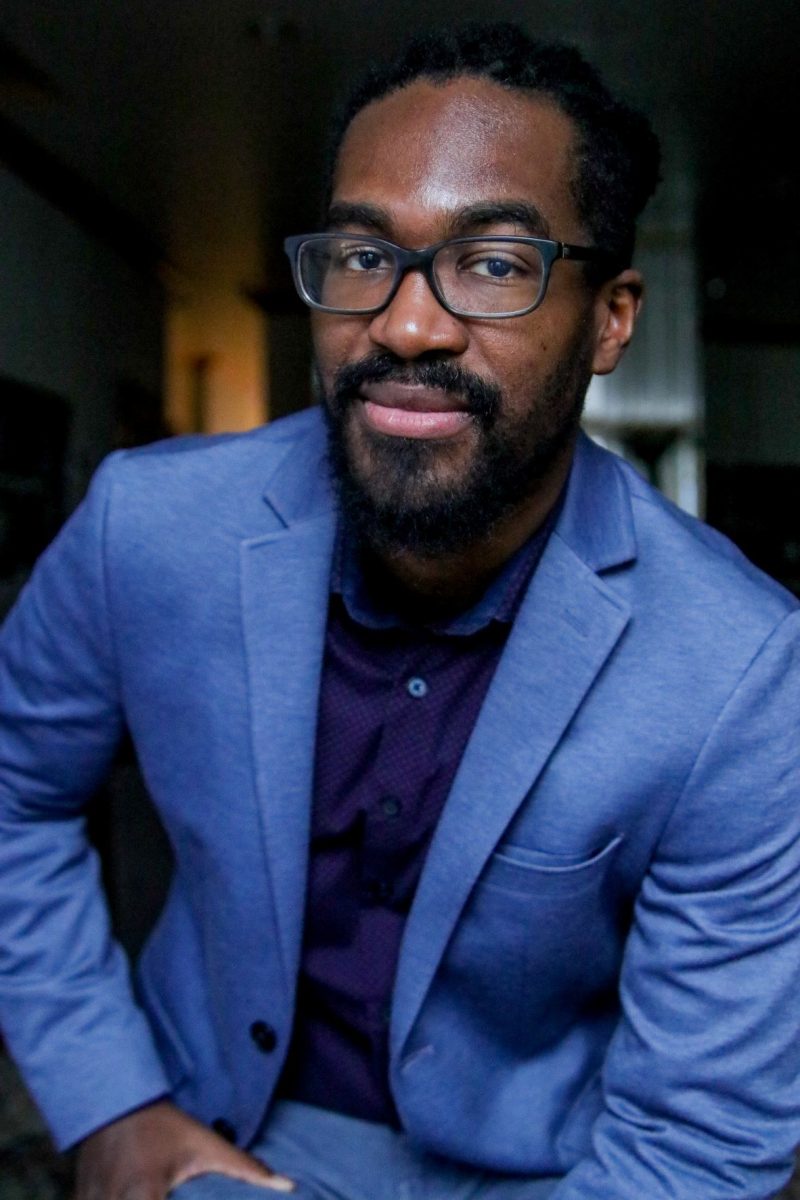The latest installment of the Graduate School of Education’s (GSE) annual Barbara Jackson, Ed.D. Lecture invited Decoteau J. Irby, associate professor in the department of educational policy studies at the University of Illinois Chicago, to speak on eliminating educational obstacles for students of color. The event was held at the E. Corrigan Conference Center on the 12th floor lounge of the Lincoln Center campus’ Leon Lowenstein Center.
The lecture, entitled “Getting Past Stuck: Research-Practice in the Pursuit of Racial Equity and Justice,” walked the audience through a seven-yearlong research project Irby undertook with Central Waters High School. Much of Irby’s extensive participatory action research on educational policy and racial equity took place at Central Waters, which — while majority white — has an increasing proportion of students of color.
In this project, Irby observed mundane violence at Central Waters, which he defined as small, little actions and behaviors that chip away at students’ sense of belongingness and powerful learning and educational experiences.
Irby described an example of when Kevin, a student of color, was standing in the lunch line with two white students in front of him. The server provided meals to the white students before him but closed the line when it was Kevin’s turn, leading him not to receive lunch that day. He recounted the situation to his principal, Ms. Moore, who was Black.
The principal immediately confronted the lunch server that day, and the server offered Kevin soup rather than an entire meal. Kevin refused the meal and said to the server: “I want you to know that I know what you did to me.” Irby argued that this type of mundane violence against students of color undermines schools’ capacities to become a supportive community.
His time at the school culminated in the writing of his most recent book, “Stuck Improving: Racial Equity and School Research,” which was published by Harvard Education Press. Irby, who teaches education policy studies, is the author of multiple published papers and four books.
His book recounts the story of how Central Waters grew its organizational capacity for racial equity, which Irby described as “a collection of resources (material, relational and aspirational) that allow a person or group to accomplish a particular task within an organization.”
“Influential presence is really about the idea that Black and brown people’s histories, ideas, aspirations, find their way into the organization in a systemic way.”Decoteau J. Irby, associate professor in the department of educational policy studies at the University of Illinois Chicago
Irby used his research at Central Waters to draw key insights into the everyday experiences of students of color and provided the audience with concepts applicable to educators efforts. He asserted that effective racial equity change consists of disruptive and creatively expansive practices in opposition to the more commonly implemented “add-on equity” approach many schools choose to put into effect.
One example Irby highlighted in his research was Central Waters’ desire to increase the number of Black and brown students who engaged in extracurricular activities. Administrators first increased the number of early and late buses available, which did little to change the status quo.
Later, the Central Waters made a deep organizational change — adding extracurricular activities in the middle of the school day schedule. This disruption led to the proliferation of not just Black and brown students in extracurricular activities, but also teachers who advised the programs.
Mundane violence against students of color undermines schools’ capacities to become a supportive community.
Another resource suggested to educators in the lecture to increase organizational capacity is influential presence.
“Influential presence is really about the idea that Black and brown people’s histories, ideas, aspirations, find their way into the organization in a systemic way,” Irby said. “This can happen through the curriculum, through leadership, and it’s not about any individual person.”
Irby went on to explain that improvements stem from like-minded and driven people committed to making a change.
Improving racial justice in school is a collective effort.
“While racial representation is important, I argue that influential presence is more important than representation,” he said.
Following the event, Elizabeth Leisy Stosich, an associate professor and associate chair of the division of educational leadership, administration and policy at Fordham, offered her reflections on Irby’s lecture.
“Dr. Irby’s research is unique in that it draws heavily on theory yet provides specific guidance for educators seeking to advance racial equity in schools and systems,” she said. “I was struck by his long and sustained commitment to working with the school (Central Waters High School) because deep and lasting change takes time.”
Stosich said that leadership programs at Fordham GSE’s use improvement science to approach change in educational institutions, and Irby’s work has helped Stosich to think more deeply about the challenges and opportunities of leading towards equity.
At the conclusion of the event, Irby shared that the main insight he hopes audiences take away from the lecture would be that improving racial justice in school is a collective effort.
“Making schools more racially equitable and just requires struggle from educators, parents and leaders,” he said.

